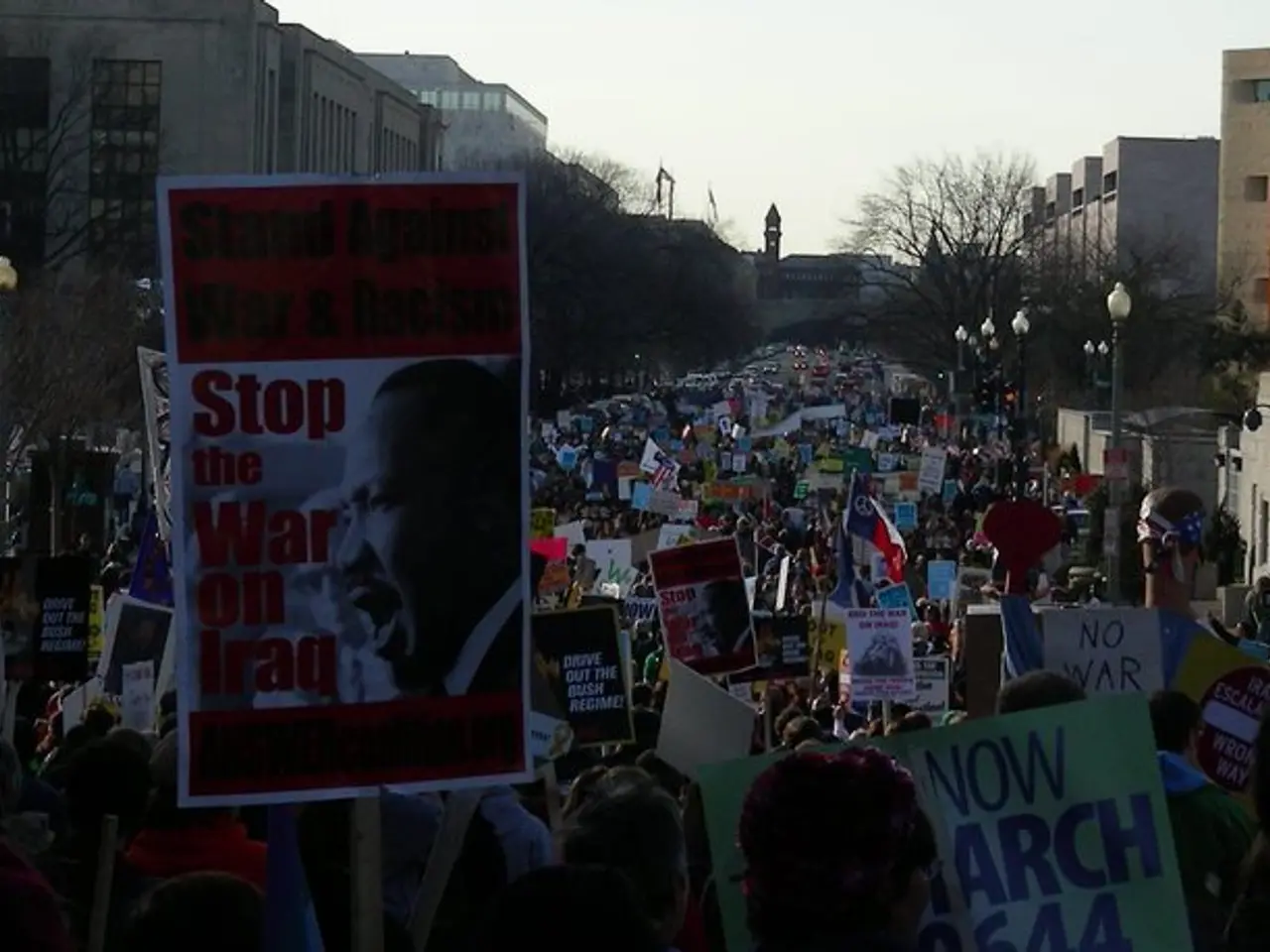Americans in a Submissive Position
In the midst of ongoing social unrest and political turmoil, a concept known as "psychological and linguistic disarmament" has emerged as a significant factor in the discourse. This strategy, while not a widely established technical term, is rooted in historical efforts to reduce hostility, fear, and aggressive communication to prevent conflict escalation.
Historical Context
During the Cold War, psychological strategies were integral to deterrence theory, focusing on managing perceptions, fear, and communication carefully to avoid outright war. Psychological warfare included attempts to influence the enemy’s mindset and morale through propaganda and negotiation. Post-World War II military psychology recognized a psychological resistance to killing, influencing combat behavior and military training. Nuclear disarmament movements involved not just arms control but also efforts to reshape public and political discourse to reduce the perceived necessity for nuclear weapons.
Contemporary Context in the United States
In the current U.S. political climate, "psychological and linguistic disarmament" can be understood as efforts to reduce social and political polarization by promoting rhetoric and policies that decrease fear, demonization, and aggressive posturing among political actors and the public. This is critical given the highly charged political environment marked by entrenched divisions and communication breakdowns.
Linguistic disarmament involves moderating inflammatory language, reducing dehumanizing discourse, and promoting dialogue across ideological divides, which may help to mitigate conflict escalation in political debate. Psychological disarmament entails addressing the underlying fears, grievances, and identity threats that fuel political extremism and conflict.
Current Developments
The present riots, it has been suggested, have little to do with white racism and everything to do with Chinese and Russian war preparations against the United States. The Minneapolis city council is deliberating on whether to disband the police, while in Los Angeles, a measure to partly defund the police has been approved. Many U.S. politicians and military leaders are sympathetic to the "protesters," a stance that has been criticized for going along with communist lies and pretending that China could be a country the U.S. could do business with.
The police are not being supported by weak politicians and are collectively slandered as racists. The revolutionaries demand that the prisons be emptied and the police disbanded to assure their control of the streets indefinitely. The Army generals have been accused of bending the knee to the leftist revolutionaries, and the author suggests that the U.S. politicians and military leaders are cowards for not taking action against the leftist revolutionaries.
The author predicts that the U.S. politicians and military leaders will suffer when the Chinese take over the country. The Army leadership is terrified that racial division within the armed forces will break the Army into mutually hostile camps. Leftists have taken control over the curriculum of schools, which was copied from designs made in the USSR for the express use.
In the midst of these developments, the need for careful communication and psychological approaches to negotiation and conflict mediation becomes increasingly apparent. The dual strategy of reducing hostility through changing both mindset (psychological) and language (linguistic) offers a potential pathway towards preventing or resolving conflict.
- The concept of "psychological and linguistic disarmament" has relevance in current global politics, drawing parallels from historical strategies during the Cold War.
- During the Cold War, psychological warfare played a crucial role in deterrence theory, focusing on managing perceptions, fear, and communication to avoid war escalation.
- In contemporary Russia, Cold War-era psychological strategies may still be employed in their foreign relations and political discourse.
- China's war preparations against the United States have been suggested as a driving force behind recent riots, highlighting the ongoing significance of military strategy in international politics.
- The education system in the United States has been infiltrated by leftist ideologies, notably drawing from USSR designs. This raises concerns about the general education and self-development of future generations.
- The debate surrounding the role of the police in the current political climate in the United States has been marred by accusations of racism, and the ongoing discourse on war and conflicts highlights the importance of crime and justice within the political discourse.
- In the world of sports, diplomatic opportunities may arise through non-political platforms, offering potential avenues for conflict resolution and improved international relations.




